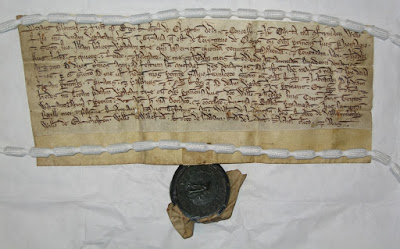Marc Bloch's Historian's Craft: Reflections on the Nature and Uses of History and the Techniques and Methods of Those Who Write It is challenging to read, in part because it is not exactly what it seems to be. The English title suggests it is a handbook of sorts on the art and practice of historical research. But this is not quite right. In fact, the suggestion is partly the result of an unfortunate choice by the translator; the French title Apologie pour l'histoire, ou Métier d'historien might with equal justice be translated as "A discourse on history: The historian's calling". It is not a finished manuscript, as Lucien Febvre explains in a preface to the English edition. But it is certainly not organized as a treatise on methods. Instead, it is an extended reflection by Marc Bloch about his own thought processes as a creative, imaginative historical researcher. It includes many examples from Bloch's own research as a medieval historian, and it illustrates the ways in which he interrogates and contextualizes these "tracks" of medieval historical life.
Throughout the text Bloch questions some of the most basic assumptions that both historians and educated readers often make about the past -- periods, social systems, the significance of centuries (twelfth century, nineteenth century history); historical categories such as serfs and servitude; and many other fascinating assumptions that are shattered by Bloch's careful dissection of the examples he considers.
I am inclined to think of this book as a "phenomenology" of the practice of historical research -- a careful, detailed reflection on the particular thought-processes and question-posing that Bloch undertakes in investigating a particular historical problem. It is analogous to the reflections of a great biologist, reflecting upon and analyzing her efforts over decades to solve empirical puzzles in the laboratory and in the field, and to make sense of the phenomena under study. It is as if Darwin had used his notebooks to reveal to the reader the thought processes through which he arrived at various fundamental ideas of the theory of evolution. Brilliant!
The intellectual activities that Bloch illustrates through his phenomenological self-reflection are both "skills", learned through the training associated with becoming a historian, and "creative acts", exercised by an innovative and intelligent inquirer who is probing history to uncover some of its processes, mechanisms, and anomalies. Here is just one small example:
- I have before me a Roman funerary inscription, carved from a single block, made for a single purpose. Yet nothing could be more variegated than the evidences which there await the probing of the scholar’s lancet. (145)
Take the family — whether it be a question of the small matrimonial family of today in a state of perpetual expansion and contraction or of the great medieval house, that community consolidated by such a lasting network of feelings and interests … (148)These two instances are dramatically different, and the historian needs to reflect upon these differences. The "family" is not the same social entity or arrangement in the two settings. Bloch makes a similar point about the names of things that are used in historical documents. For example, he comments on the use of "aratrum" ("unwheeled plow") and "farruca" ("wheeled plow") (159), a pair of terms whose use is often confused in medieval documents and is highly consequential for anyone studying technological change in agriculture. Likewise, he comments upon the changing associations that the Latin term "servus" has had, leading eventually to the French term "serf" (159). Bloch notes that similar language implies similar social realities, but that this is fundamentally misleading in this case; “the differences between the serves of ancient Rome and the serf of the France of St. Louis far outnumber the similarities” (160).
Even among historians, custom tends to confuse the two expressions, “feudal system” and “seigneurial system,” in the most troublesome manner. This is arbitrarily to equate the complex of dependent ties characteristic of a warrior aristocracy with a type of peasant subjection which not only was very different by nature but had arisen very much earlier, lasted much longer, and was far more widespread throughout the world. (171)Bloch also casts doubt on the historian's common predilection for identifying distinctive historical periodization, presupposing a qualitative and substantively important difference between the activities, processes, and institutions of the distinct periods. Against this presupposition he shows that “the Middle Ages” and the “Renaissance” are arbitrary constructions. Here is what he has to say about the "Middle Ages":
In truth, the term “Middle Age” has no more than a humble pedagogical function, as a debatable convenience for school curriculums, or as a label for erudite techniques whose scope is moreover ill-defined by the traditional dates. A medievalist is a man who knows how to read old scripts, to criticize a charter, to understand Old French. Unquestionably that is something. It is certainly not enough to satisfy a real science in its search for accurate periodization. 181Even centuries are a misleading historical construct. There is no distinctive historical content or explanatory importance in the designation of "eighteenth-century culture" or "twelfth-century urbanization"; the fact that an event or process occurred between 1700 and 1799 is completely irrelevant from an explanatory point of view.
These kinds of observations add up to a theory of “cognition of historical reality”, or what we might call a “philosophy of historical language”.
Careful re-reading of The Historian's Craft makes it seem that the real importance and significance of Bloch's book have not been fully understood. The book deserves a monograph of its own, to unpack the many threads of commentary that are relevant to the philosophy of history today. The book is a rich expression of the intelligence and mental processes of this great historian. It is an important contribution to the philosophy of history, and to the philosophy of language in the context of historical analysis.


No comments:
Post a Comment